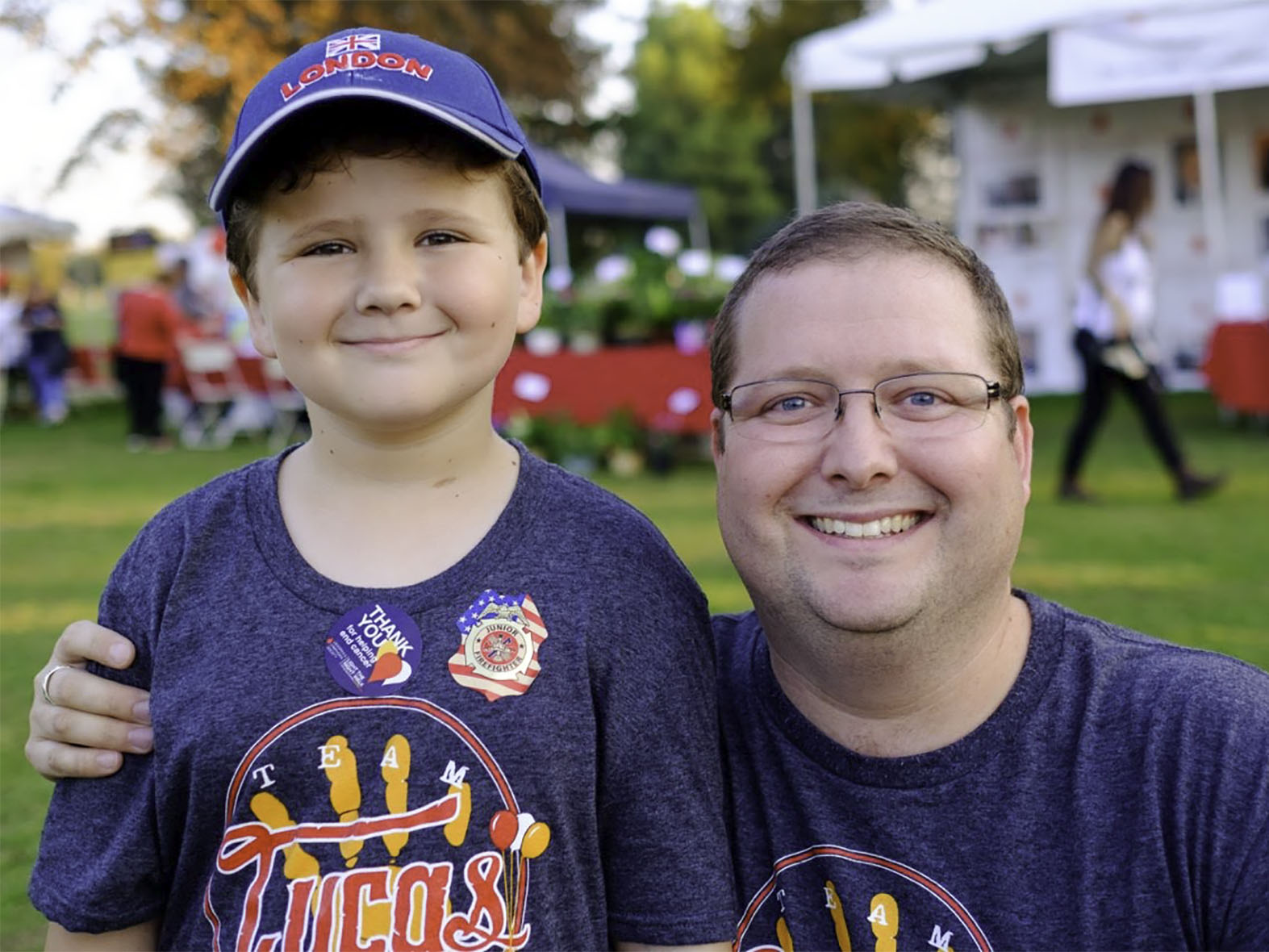
School Nurse David Tate Champions Support for Kids Battling Cancer
Wednesday October 30, 2024
In the halls of Rio Bravo-Greeley Union School District (RBG), School Nurse David Tate has made it his mission to bridge the gap between education and healthcare for families going through childhood cancer. Inspired by his son’s fight with leukemia, Tate, alongside the Leukemia and Lymphoma Society (LLS), has championed resources aimed at helping schools support children with cancer as they return to the classroom.
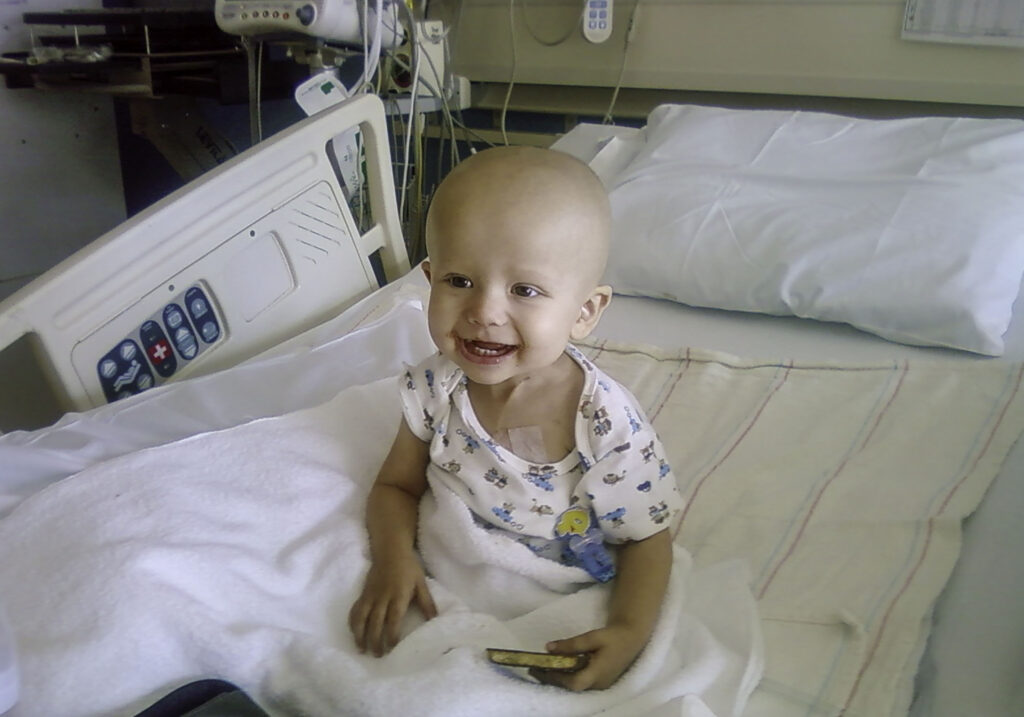
When Lucas was diagnosed with acute lymphoblastic leukemia at only seven months old, Tate and his wife, Kristel, a teacher at RBG, found themselves suddenly thrust into the world of childhood cancer. It was an isolating experience, as Lucas needed intensive treatment at UCLA, far from their home in Bakersfield. The journey led Tate to go back to school so that he could begin a new career as a school nurse. He has also spent the last 15 years as a volunteer advocate with LLS, where he uses his experience to make life easier for families facing similar diagnoses.
“This has by far been the most challenging experience that I’ve had in my life, having a child that’s been diagnosed with cancer and going through cancer treatment,” Tate said. “But the silver lining for us is that Lucas has survived and is doing very well.”
One of Tate’s most significant contributions is A School’s Guide for Children With Cancer, a resource developed with LLS to help school personnel, healthcare providers, and families navigate the unique challenges children with cancer face in educational settings. As Tate explained, when a child has cancer, it can be easy to focus solely on treatment, letting education take a back seat. He believes a child’s emotional and social well-being hinges on staying connected to the school community as much as possible.


The Tate family had to travel back and forth to UCLA for Lucas’ treatment.
“We didn’t have a guide like this when we were going through this with Lucas,” he added. “This toolkit really helps facilitate those discussions and empower people to make good decisions to best support these students.”
The guide was created not only with medical insights but also with families’ lived experiences in mind. Tate recalls how difficult it was to support both Lucas and his older brother, Bradley, who struggled with the changes to their family’s routine and dynamic during Lucas’s care. Families often feel overwhelmed and isolated, and Tate hopes that the guide can provide them and their schools with practical support, fostering a more inclusive and understanding school environment.
“It can feel very foreign for a family trying to navigate childhood cancer because unless you’ve experienced it, it’s really difficult to understand it,” Tate said. “The guide gives context to the staff.”
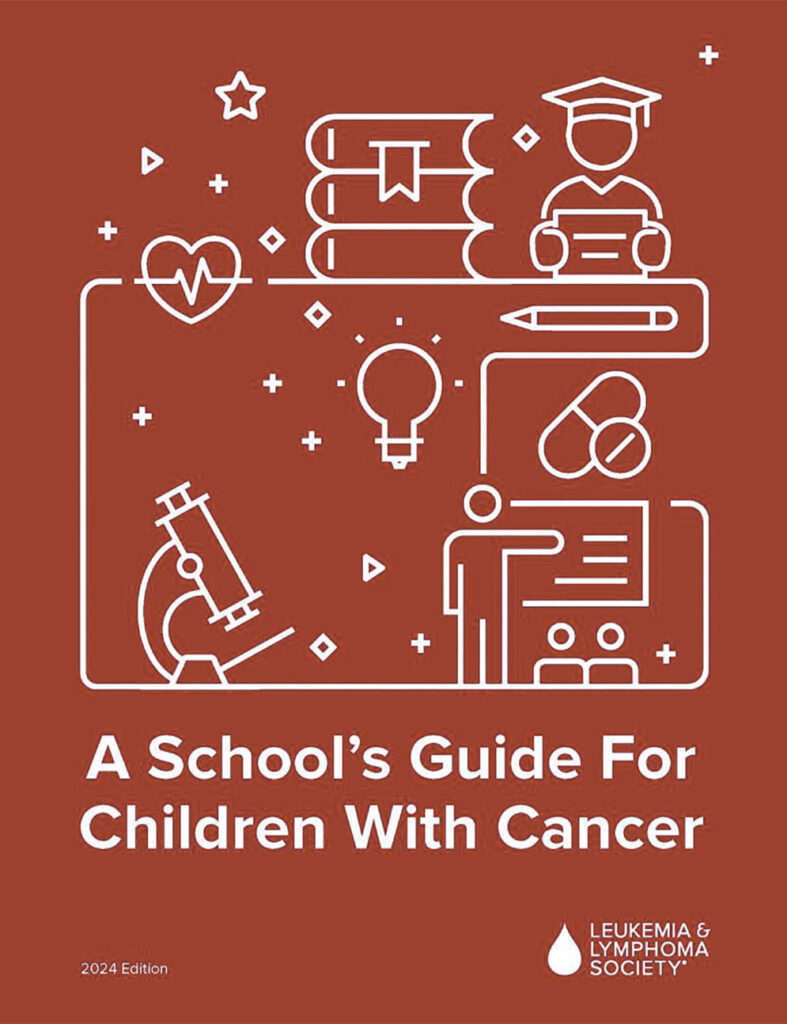
It addresses a wide array of topics, from understanding the emotional impact of cancer on children to preparing for their return to school and managing potential long-term side effects of treatment. Many students will need physical accommodations, such as a hat, to protect them from the sun. Others may need academic support due to processing delays or fatigue, which are common side effects of chemotherapy.
“It’s geared toward anyone who is going to have contact with a child with cancer in the school setting and be a person that supports them when they’re back in school,” Tate said.
Karen DeMairo, LLS’s vice president of education, support, and integration, led the team that produced the school guide. She says LLS had a similar guide and school re-entry education programs in place, but they had not been updated or streamlined since the 1990s. DeMairo says that thanks to Tate and her team, the updated school guide is a practical tool that staff can use as a point of reference when reintegrating kids back into school.
“We put in examples and templates that you can either use or not use. They have something to look at and say, this is what has to be done,” she explained. “We’re normalizing things for the school personnel, giving them some of the information, so that it’s not so foreign, less terrifying when this child comes back.”
Bethanie Mills is the director of patient and community outreach for LLS in the Central Valley. She has seen firsthand the impact these guides can have on students, staff, and families. Having spent her career connecting families with resources, she describes the school guide as a lifeline for those who may be new to dealing with childhood cancer.
“Our job is to take these resources and get them out into the community,” Mills said. “To have a resource that’s as well done as this; I was so impressed with the expertise.”

“This has by far been the most challenging experience that I’ve had in my life, having a child that’s been diagnosed with cancer and going through cancer treatment.”
David Tate
In addition to the guide, Tate and the LLS team developed Staying Connected, an online course that serves as a professional development resource for school staff. Staying Connected offers an in-depth look at the emotional, social, and physical needs of children with cancer. It educates teachers, administrators, school nurses, and even parents on how best to support students during and after treatment.
“Whatever can be done to give students what they can consider a normal life going forward,” DeMairo said. “We’re just creating the resource so that everyone else can do what they need to do. It makes all the difference in the world.”
LLS and local advocates like Tate continue to spread the word about these resources. Since their launch in July, over 700 copies of the guide have been distributed nationwide. Mills acknowledges the essential role of community advocates in this work.
“We could not do what we do without volunteers like David who are willing to share their expertise and their own personal stories,” she said. “And a huge kudos to Karen and her team.”
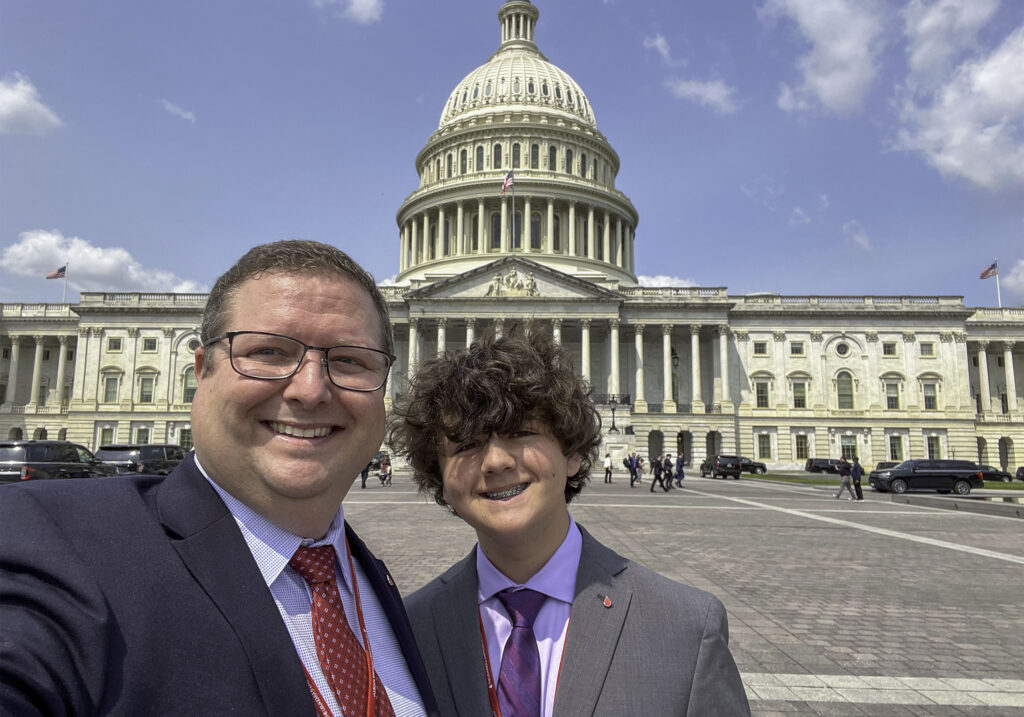

David and Lucas Tate visit Washington D.C. to share their story and advocate for families with cancer.
Tate’s journey as a school nurse and an advocate for children with cancer began with his own family’s struggles. Now, as Lucas approaches his 16th birthday, David dedicates his work to paying it forward and supporting all families in Kern County and beyond. His message to other parents is one of solidarity.
“They’re not alone. There are people that want to help,” Tate said. “They absolutely do have somebody in their corner that wants to make good decisions and help their students.”
Free digital copies of A School’s Guide for Children With Cancer can be downloaded from the LLS website. You can also request printed copies free of charge. Resources are also available in Spanish for those who need it.
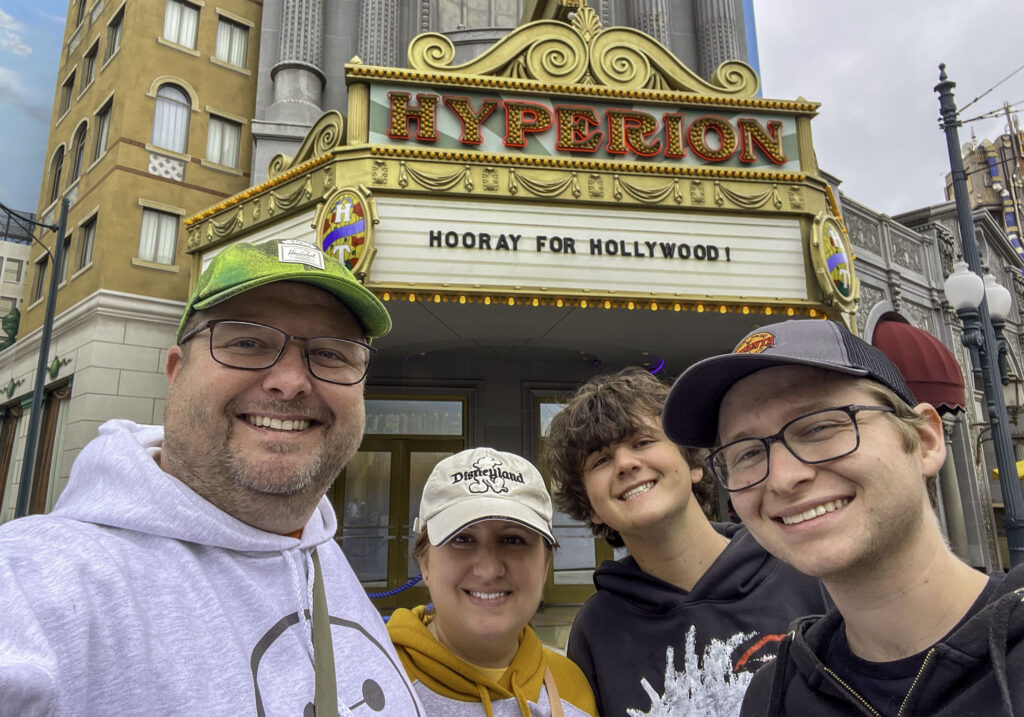

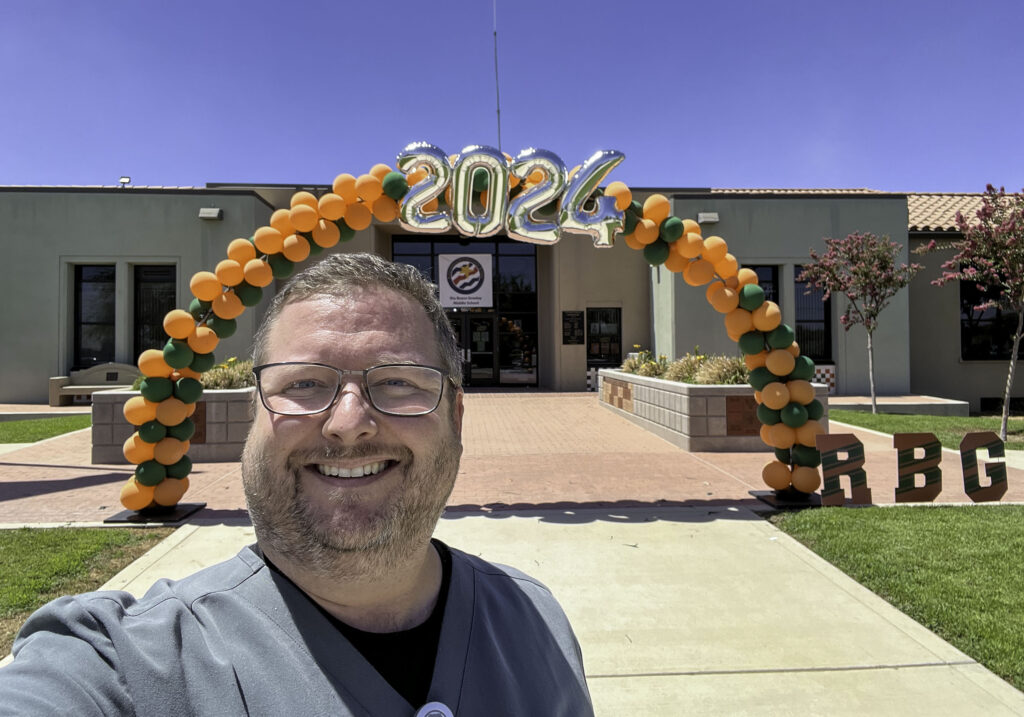
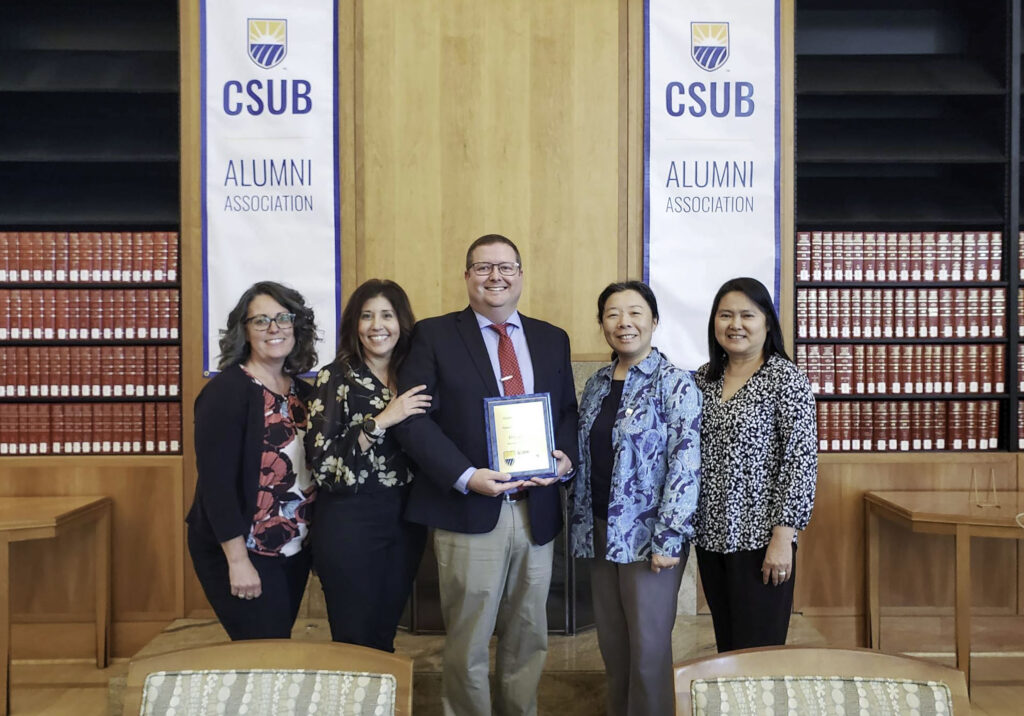
By Katie Avery
Katie Avery joined the Kern County Superintendent of Schools in 2023 as a Communications Specialist. As a former journalist and marketing professional, her passions include media and storytelling. Before joining KCSOS, Avery worked for various local TV stations as well as the health care industry.
